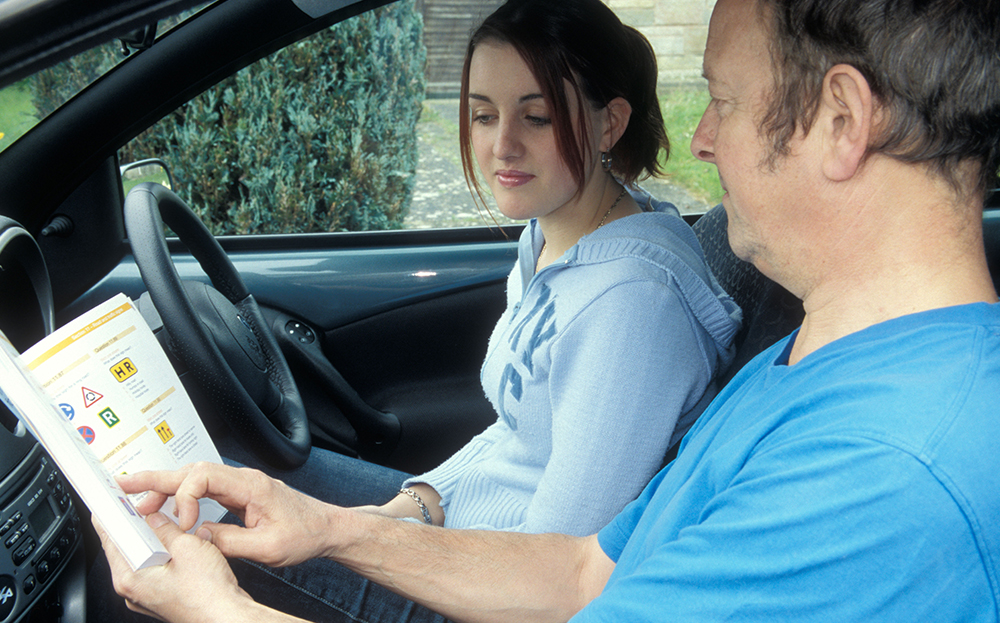Exclusive: Survey confirms British motorists’ uncertainty over rules of the road
Do you need to brush up on the Highway Code?

WE’VE ALL done it: chastised another motorist for driving in a manner we believe is contrary to the guidelines – and sometime laws – laid out in the Highway Code, but how good is your own knowledge of the rules? A new survey suggests drivers aren’t as clued-up as they think.
A survey of 2,003 UK adults aged 18 and over by Esure, a car insurer, asked whether a selection of rules from the Highway Code were true or false. Three, created by the company, were added as red herrings.
Of these, the one that caused most confusion was: “The Highway code does not advise to switch off your mobile phone before driving, in case you need it in an emergency.”
Search for and buy a used car here
Proving that the advice regarding the use of phones in cars is still not widely understood, 45% of respondents admitted they didn’t know whether this was true. More than a quarter (26%) answered, incorrectly, that it was. In fact, while it is not a legal requirement, the official advice is to ensure that your mobile phone is switched off before driving (rule 97).
Another statement created by Esure that caused respondents equal confusion was: “The person responsible for ensuring a passenger over the age of 14 is wearing their seat belt in a car, is the driver.”
If you believe this to be true, you’d be in poor company – 76% of respondents agreed, wrongly, with you.
According to rule 99 of the Highway Code, it is the responsibility of the passenger to make sure they are wearing their seat belt. The driver is responsible only for passengers aged up to 14 years old (find the details here).
Those surveyed were also asked to say whether the speed limit on the hard shoulder of a motorway is 70mph; 67% of them mistakenly said this was false.
Indicating a small majority think that driving standards should be improved, 55% of those surveyed agreed that motorists should be tested on their driving ability more than they are at present.
IAM director of policy and research Neil Greig said: “It’s no real surprise that knowledge of the Highway Code is low. It may be a top seller every year but it most certainly comes at the bottom of the most read list! The current Highway Code is too long, complex and unattractive for anyone to dip back into once they have done enough to pass the theory test, and it gets longer with every rewrite.
“The IAM does not favour compulsory retesting as there is no clear evidence that testing the safest drivers on the road would actually help reduce accidents – like every test, drivers would just learn how to pass rather than how to change their behaviour.
“Alongside making the Highway Code a lot more exciting what is needed are ongoing refresher campaigns on the key messages e.g. mobile phones, looking out for vulnerable road users and speeding.
“These can be backed up by wider use of driver rehabilitation courses for those who do come to the attention of the law and of course more encouragement by the insurance industry to update your skills. Continuing personal development and lifelong learning are widely used phrases in the workplace – why not on the road?”
Esure’s Highway Code survey results
| Rule |
True |
False | Don’t know | Answer |
| You must use headlights when visibility is seriously reduced. Generally when you cannot see for more than 100m (328ft) |
83% |
8% |
9% |
True |
| If there is no pavement, pedestrians should walk on the right-hand side of the road, so they can see oncoming traffic |
82% |
9% |
9% |
True |
| The person responsible for ensuring a passenger over the age of 14 is wearing their seatbelt in a car, is the driver |
76% |
17% |
7% |
False |
| You must not leave a parked vehicle unattended with the engine running |
76% |
11% |
13% |
True |
| The police have the power to require a driver to undertake an eyesight test |
65% |
11% |
24% |
True |
| You should only overtake on the left if the vehicle in front of you is signalling to turn right, and there is room to do so |
61% |
26% |
12% |
True |
| Driving without insurance carries a maximum £5,000 fine |
45% |
11% |
43% |
True |
| The Highway Code does not advise to switch off your mobile phone before driving, in case you need it in an emergency |
26% |
30% |
45% |
False |
| The speed limit for the hard shoulder on a motorway is 70mph |
18% |
67% |
15% |
True |
| You don’t have to report to the DVLA any health condition likely to affect your driving, as this is your personal information |
10% |
83% |
7% |
False |




